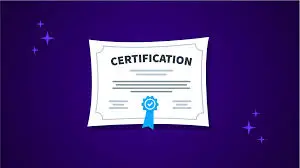INTRODUCTION
Climate change and its impacts have become one of the most significant challenges of the 21st century. Climate-related risks, whether concurrent or prospective, need to be addressed swiftly as part of development strategies at all levels.
With population expansion and rapid industrialization in both developed and developing countries, policy-makers need to ensure resilience to the possible exacerbation of risks caused by hydro-meteorological hazards due to climate change. However, understanding the science of climate change and integrating adaption measures into development policies and practices has become a challenge for development and disaster risk reduction practitioners. Illustrating climate risk management in urban and rural settings and focusing on the sectoral challenges, ADPC's training course offers a unique opportunity for these professionals to enhance their knowledge, expertise, and skills on the topic.
In the course, participants will be guided through a series of interactive sessions that will enable them to acquire scientific knowledge to assess and strategically reduce climate risks. The aim of the course is to harmonize climate risk management, disaster risk reduction, and development planning into a holistic approach to sustainable development.
DURATION
10 days
Course Outline
TRAINING OBJECTIVES
Upon completion of the course, participants will be able to:
- Discuss the science, systems and societal issues of climate change, impacts of climate change and their linkages with climate-induced extreme events
- Assess specific sector vulnerabilities to climate change in different settings
- Utilize decision support systems for assessing climate impacts, vulnerabilities and risks and use the tools for designing climate risk management policies, programs, and interventions
- Discuss climate change planning processes for designing climate risk management policies, strategies, programs and interventions
- Identify a menu of options for climate risk management to a given context
- Share good practices and lessons learned on climate risk management (CRM) from different contexts
- Develop hands-on skills on how to develop a CRM initiative using the existing knowledge in an innovative learning environment
Course Modules
TRAINING CONTENT
Module 1: Concepts and emerging directions of climate change and climate risk management
basic concepts and terminologies in climate risk management
Fundamentals of Climate Change Science Defining weather, climate, and climate change
- The science behind climate change: greenhouse effect etc.
- Climate Change and climate variability
- Emerging directions of Climate Risk Management practice
- Climate change and extreme events
- Linkage and overlap of CCA and DRR
Module 2: Climate change projections and decision support tools in climate risk management
Overview of climate modeling for climate risk management, overview of projection and modeling of climate change and its impacts
- Projection of future climate change: General Circulation Model, Regional Circulation Models, Atmospheric and Oceanic Models etc.
- Use and applications of the projections and climate model outputs in planning and policy formulation
- Accessing Local Climate Scenarios and Climate Risk Mapping
- Downscaling of global and regional climate models into local climate scenarios
- Overview of a downscaled climate modeling output for local climate scenarios
Module 3: Climate change and urban built systems
Overview of the projected issues of climate change and urban built system Overview of the urban settings and climate change impacts on the built systems
- Housing and public amenities / urban settlements/heat island
- Urban infrastructure, common amenities, drainage and flood controls
- Water, sanitation and hygiene and health
- Managing megacities / coastal cities in changing climate
- Case study example of climate risk management in urban built systems
- Detailed case study and critical overview of a case study on urban climate risk management
Module 4: Climate change and rural ecosystems
Overview of the projected issues of climate change and rural ecosystems
- Overview of the rural ecosystems and climate change impacts on various eco-systems
- Sustainable livelihoods
- Agriculture and food security
- Case study on climate management in rural settings
- Detailed case study and critical overview of an agricultural climate risk management project
Module 5: Climate risk management planning and implementation
- Climate Risk Management Planning Processes at the national level, sub-national and local levels
Climate forecasts and applications for proactive risk management - Description of various types of climate forecast products (including short, medium, Seasonal, long-range)
- Integration of climate change adaptation in urban built environment and local development programs
- Climate proofed housing and infrastructure
- Urban drainage and flood controls
- Public health
- Coastal city and urban land use planning
Module 6
Integration of climate risk management in rural development and ecosystem-based programs focusing on agriculture and livelihoods Agriculture based adaptation (crops, aquaculture and animal husbandry)
- Incorporation of climate forecasts for selection of livelihood options including selection of crops
- Crop insurance and microfinance for climate resilience
- Farmer’s field schools and data advocacy for climate resilience
- Concrete examples of two climate forecast applications one in a rural setting (e.g. CFA examples) and another in an urban setting (i.e. Urban flood forecast in Jakarta).
- Climate resilience indicators
- Overview to climate resilience
- Climate resilience indicators in urban built environment
- Climate resilience indicators for coastal environment
- Climate resilience indicators in rural agriculture based environment
Module 7: Cross-cutting issues to address climate change, Climate Risk Management and socially vulnerable groups Gender, children, elderly, differently abled people
- Other marginalized groups
- Extreme events and findings of SREX report
- Early warning system development and contingency planning for effective response to changing hazardous environment
- Economics of Climate Change and Climate Risk Management
- Climate Risk Communication
- CRC at national and sub-national level
- CRC at local levels
Module 8: Future knowledge applications and conclusions
Hands-on exercise on project concept development exercise
- Exercise on development of two project concept notes (in a brief manner) using the knowledge from the earlier
- sessions (one reflecting urban setting and another on rural setting)
- Presentation of the project concept in groups and mock evaluation of the proposals by a technical team, course
- conclusions and way forward
Related Courses
Course Administration Details
Methodology
These instructor-led training sessions are delivered using a blended learning approach and include presentations, guided practical exercises, web-based tutorials, and group work. Our facilitators are seasoned industry experts with years of experience as professionals and trainers in these fields. All facilitation and course materials are offered in English. Participants should be reasonably proficient in the language.
Accreditation
Upon successful completion of this training, participants will be issued an Indepth Research Institute (IRES) certificate certified by the National Industrial Training Authority (NITA).
Training Venue
The training will be held at IRES Training Centre. The course fee covers the course tuition, training materials, two break refreshments, and lunch. All participants will additionally cater to their travel expenses, visa application, insurance, and other personal expenses.
Accommodation and Airport Transfer
Accommodation and Airport Transfer are arranged upon request. For reservations contact the Training Officer.
Tailor-Made
This training can also be customized to suit the needs of your institution upon request. You can have it delivered in our IRES Training Centre or at a convenient location. For further inquiries, please contact us on:
Payment
Payment should be transferred to the IRES account through a bank on or before the start of the course. Send proof of payment to outreach@indepthresearch.org
Click here to register for this course.
Register NowCustomized Schedule is available for all courses irrespective of dates on the Calendar. Please get in touch with us for details.
Customize AttendanceDo you need more information on our courses? Talk to us.

















